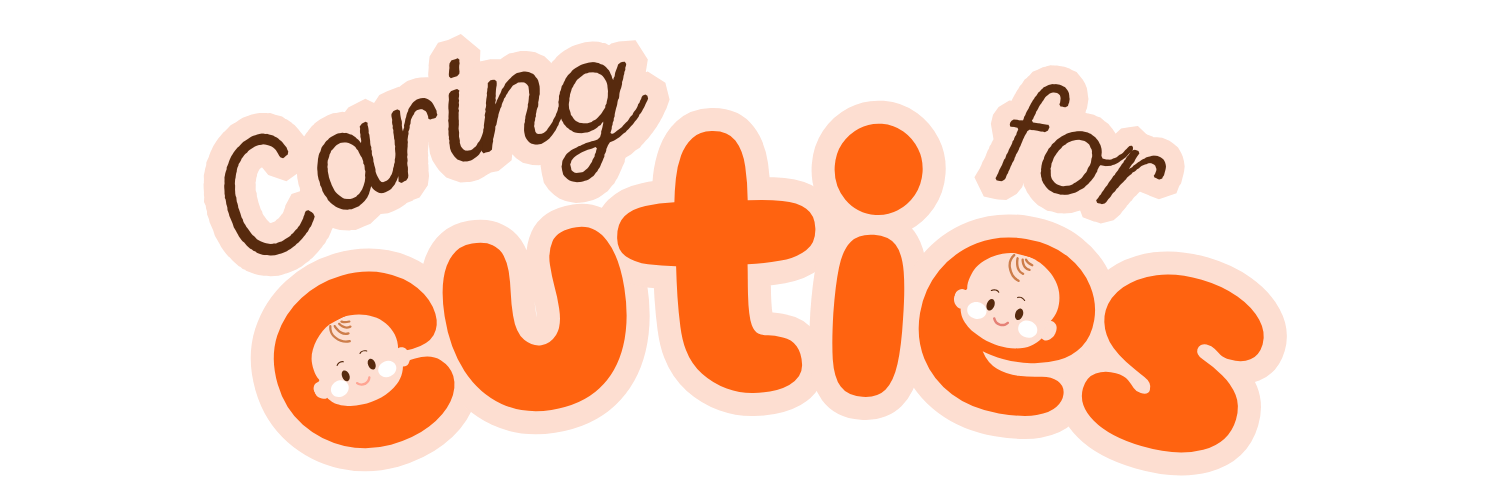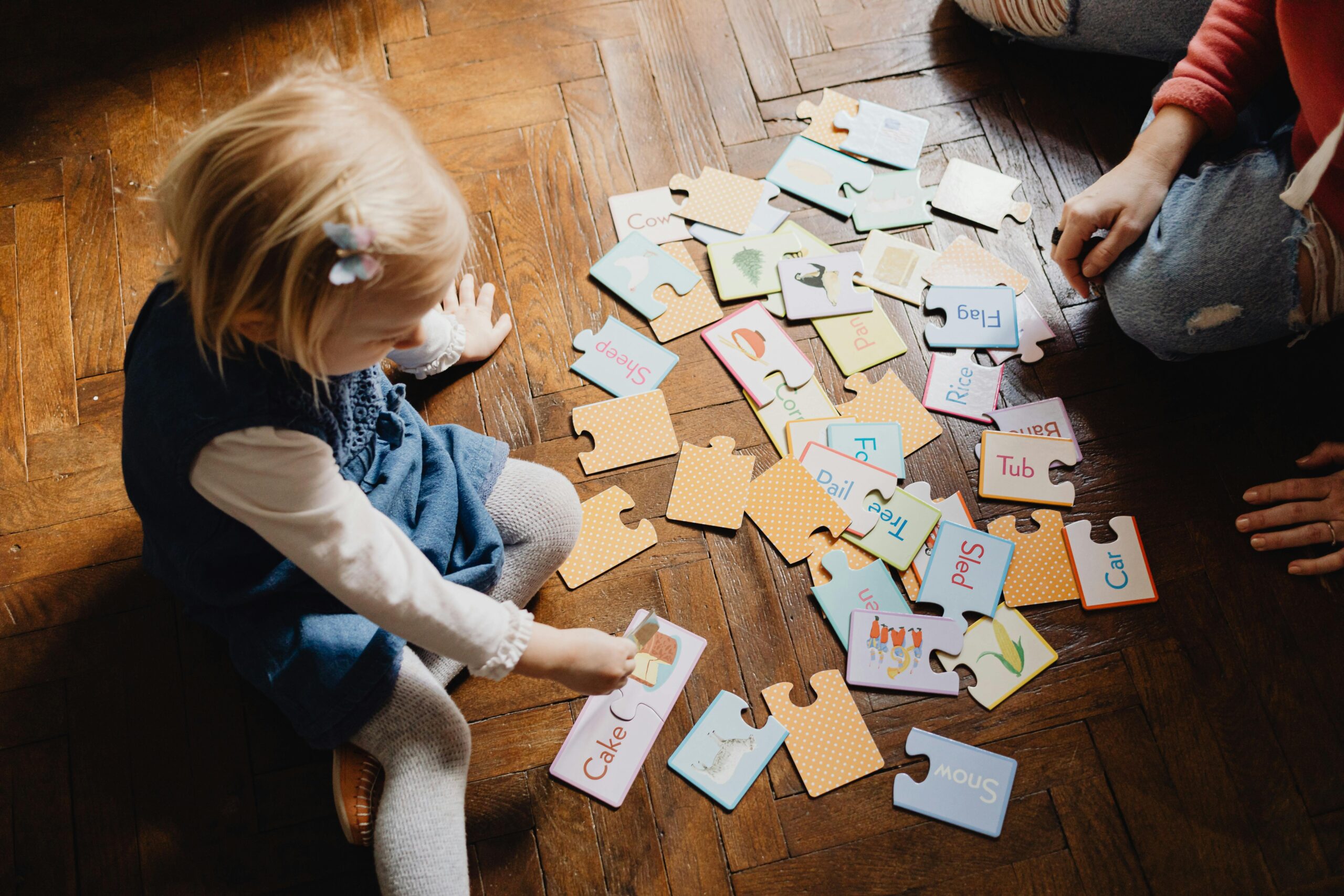Have you ever wondered if your toddler’s language skills are on track? Language development is key for their growth. The American Academy of Pediatrics says parents should watch for milestones and seek help if there’s a delay. Knowing the signs of language development can help spot issues early.
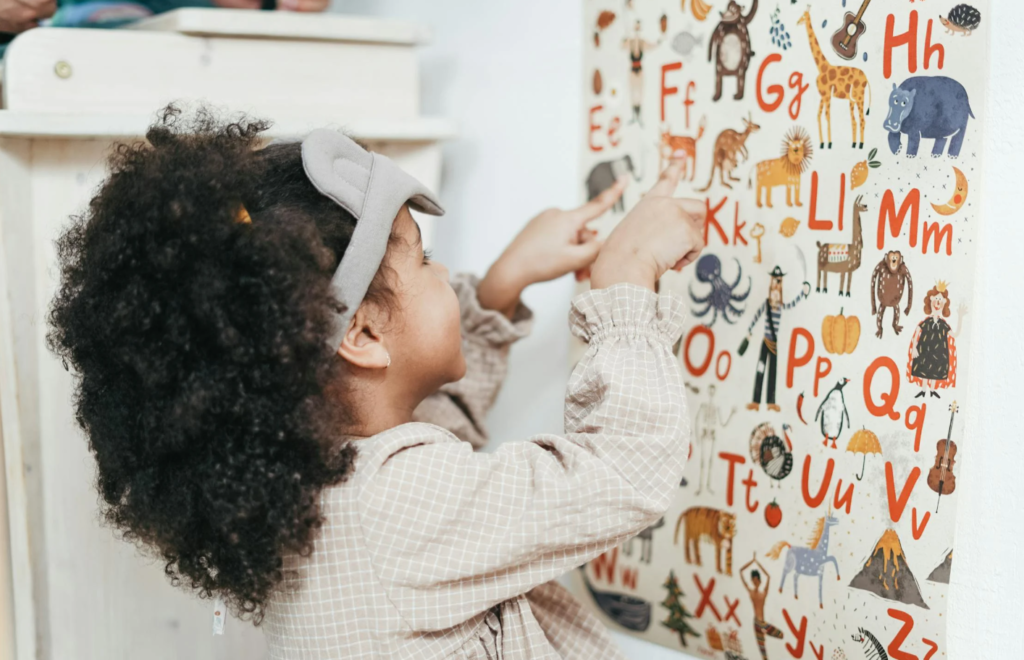
Understanding the signs of language development in toddlers is important. It helps support their growth and ensures they reach their full ability. Knowing the milestones can help spot delays. Tracking speech milestones in children is vital for their communication skills.
Key Takeaways
- Language development in toddlers is a critical aspect of their overall development
- Toddler language development milestones are essential to track
- Speech milestones in children can help identify possible issues early on
- Monitoring language development in toddlers can help support their growth
- Early intervention is key to addressing any possible language development delays
- Awareness of language development milestones can help parents seek professional help when needed
Understanding Toddler Language Development Milestones
Toddler communication skills are key in early childhood language development. As kids grow, they hit different language milestones. These are important for their thinking and social skills. Studies show that tracking these milestones helps spot problems early.
Learning to speak, listen, and understand is complex for toddlers. Early childhood language development is foundational. Parents can help by reading and telling stories to their kids.
What Are Language Milestones?
Language milestones for toddlers are the stages they go through in learning language. These include babbling, saying first words, and combining words. Parents can watch their child’s progress and get help if they’re slow.
Why Milestones Matter
Language milestones are important because they help parents understand their child’s language growth. By watching these milestones, parents can spot problems early.
Common Development Patterns
There are common patterns in toddler language development:
- Babbling and making cooing sounds at 6 months
- Saying first words at 12 months
- Combining two words together at 18 months
- Using simple sentences at 24 months
Knowing these patterns helps parents support their child’s language growth. It ensures they reach important language milestones.
| Age | Language Milestone |
|---|---|
| 6 months | Babbling and making cooing sounds |
| 12 months | Saying first words |
| 18 months | Combining two words together |
| 24 months | Using simple sentences |
Early Signs of Language Development in Toddlers
Toddlers as young as six months start showing early signs of language development. They begin babbling and gesturing. These signs are key for their future communication skills. Parents can help by responding to these signs and talking with their child.
Some early signs of language development in toddlers include:
- Babbling with vowel sounds
- Gesturing, such as waving or pointing
- Vocal play, such as making sounds or imitating tones
These signs are vital in toddler language acquisition. They show a child is on the right path to meet their toddler talking milestones.
By noticing and responding to these early signs, parents can support their child’s language growth. This helps them reach their full communication abilities.
| Age | Language Development Signs |
|---|---|
| 6 months | Babbling with vowel sounds |
| 9 months | Gesturing, such as waving or pointing |
| 12 months | Vocal play, such as making sounds or imitating tones |
Age-Specific Language Expectations
As a parent, watching your child’s language growth is key. The American Academy of Pediatrics sets milestones for toddlers’ language. Knowing these milestones helps support your child’s speech.
Toddlers show unique language skills at different ages. Between 12-18 months, they start babbling and making sounds. By 18-24 months, they say simple words like “mama” or “dada.”
By 24-36 months, they mix two words and point to body parts. This shows their language skills are growing.
12-18 Months Milestones
- Responding to their name
- Imitating sounds and facial expressions
- Starting to babble and make cooing sounds
18-24 Months Milestones
- Saying a few words, such as “mama” or “dada”
- Pointing to body parts when asked
- Following simple instructions
24-36 Months Milestones
- Combining two words together
- Identifying body parts
- Using simple sentences to communicate
Knowing these milestones helps you support your child’s language. If you’re worried about their speech, talk to your pediatrician or a speech-language pathologist. They can offer guidance and support.
Red Flags in Toddler Speech Development
As a parent, knowing the red flags in toddler speech is key. It helps ensure your child hits their language milestones. Signs like no babbling or gesturing by 12 months can signal a delay.
Look out for a small vocabulary, trouble saying two words together, and ignoring their name. If you see these signs, get help fast. Early action is vital for your child’s language growth, and you’re a big part of it.
Common Warning Signs
- Lack of babbling or gesturing by 12 months
- Limited vocabulary
- Difficulty combining two words together
- Not responding to their name
When to Seek Professional Help
If you worry about your child’s language, get help right away. A speech-language pathologist can check your child’s skills and offer advice. Every child grows differently, but knowing the warning signs can help a lot.
Being proactive and seeking help when needed can greatly benefit your child. It helps them reach their language milestones and succeed in their journey.
Supporting Your Toddler’s Language Growth
Parental involvement is key for a child’s language growth. Studies show that responding to a toddler’s attempts to talk can boost their toddler communication skills. By talking and creating a language-rich space, parents can help their child’s early childhood language development.
Here are some ways to support your toddler’s language growth:
- Respond to their attempts to communicate, even if it’s just babbling
- Read together regularly to expose them to new words and phrases
- Engage in conversations, asking questions and listening to their responses
By following these tips, parents can help their toddlers develop strong toddler communication skills and support their early childhood language development. Remember, every child is unique, and some may need more support than others. If you have concerns about your child’s language development, consult with a healthcare professional or a speech-language pathologist.
“Language development is a critical aspect of a child’s overall development, and parental involvement is key to supporting this process.”
| Age | Language Milestones |
|---|---|
| 12-18 months | Babbling, gesturing, and responding to names |
| 18-24 months | Saying a few words, pointing to body parts, and following simple instructions |
| 24-36 months | Using simple sentences, identifying objects, and engaging in conversations |
The Role of Environmental Factors in Language Development
Environmental factors greatly shape a child’s language skills. The home and social interactions are key. A rich language environment boosts a child’s language abilities.
A child’s home can either help or hinder their language growth. A lack of books and educational resources can slow them down. But, a home that values reading and talking can help a lot. Social interactions are also vital, as children learn new words from others.
Home Environment Impact
To support a child’s language, make their home a language-rich place. This means lots of words and stories. Parents can help by reading, singing, and telling stories together.
Social Interactions
Interacting with others is key for language growth. Children pick up words and phrases from talking to others. Parents can help by getting their child involved in preschool or playgroups.
Screen Time Effects
Too much screen time can harm a child’s language skills. Parents should limit it. Instead, encourage activities that help language grow, like reading and talking.
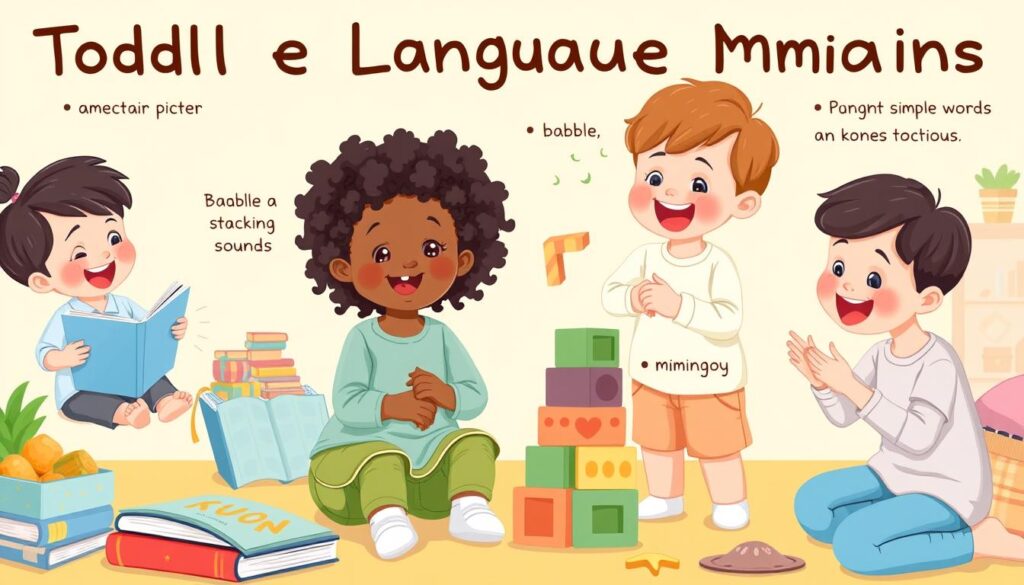
Understanding how environment affects language can help parents. They can create a rich language environment, encourage socializing, and limit screen time. These steps support a child’s language growth and help them develop strong skills.
| Environmental Factor | Impact on Language Development |
|---|---|
| Home Environment | Supports or hinders language development |
| Social Interactions | Essential for language development |
| Screen Time | Negative impact on language development |
Building Strong Communication Foundations
Creating a solid base for communication is key for a child’s language growth. When parents respond to their child’s early attempts to talk, it boosts their toddler language development milestones. This helps kids learn to understand and use words, form sentences, and have meaningful talks.
Here are some ways to strengthen communication skills:
- Responding to coos and babbles
- Using baby sign language
- Reading books together
- Engaging in conversations during daily activities
These steps help toddlers hit language milestones for toddlers like saying their first words. They also learn to combine words and use simple sentences. A strong communication base gives kids a great start for future language skills and helps with their thinking and social skills.
Studies show that a strong communication foundation is vital for a child’s language growth. By talking back to their early words and joining in conversations, parents help their child develop important language skills. These skills are essential for success in life.
Building strong communication foundations is a critical component of supporting a child’s language development. By responding to their attempts to communicate and engaging in conversations, parents can help their child develop the language skills they need to succeed in life.
Activities to Enhance Language Skills
It’s important to engage in activities that help grow language skills in toddlers. Simple yet effective activities can make a big difference. By adding these activities to daily routines, parents can create a rich language environment.
Reading and storytelling, interactive games, and daily conversations are great ways to boost language skills. For instance, reading aloud introduces new words and ways of speaking. Games like pointing and naming objects help toddlers learn and talk more.
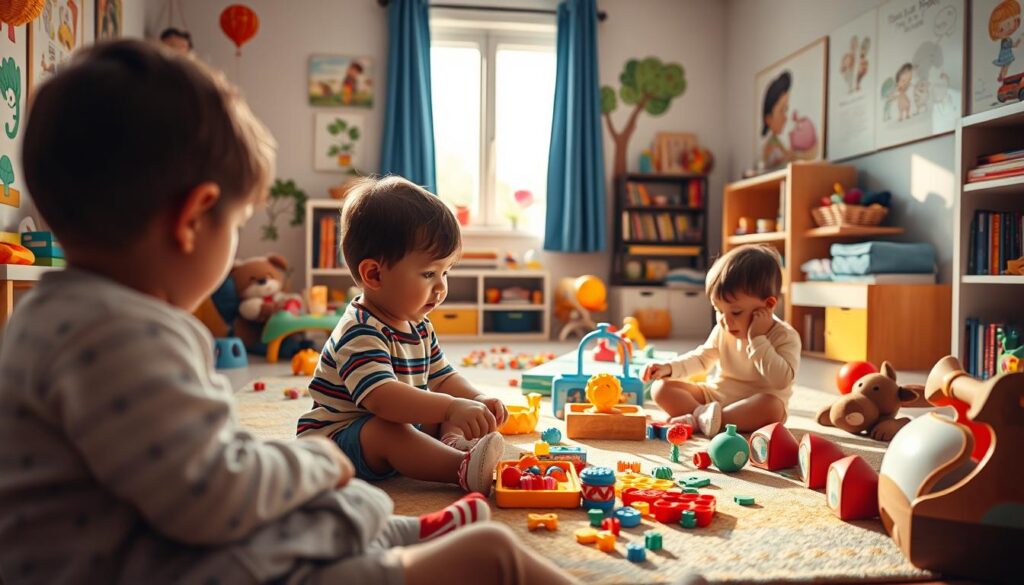
Daily chats with toddlers also improve their language skills. Parents can talk about everyday things, like during meals or playtime. This helps toddlers learn and grow their language abilities.
Practical Tips for Parents
- Read aloud to your toddler regularly
- Engage in interactive games that promote language development
- Use everyday situations as opportunities for conversation
By following these tips, parents can help their child’s language grow. This supports strong communication skills and a solid language foundation in early childhood.
Professional Assessment and Intervention Options
Early intervention is key for speech milestones in children. The American Academy of Pediatrics suggests getting professional help if you notice delays in language. Language growth in toddlers is vital, and any delays can affect their future.
Intervention options include speech therapy and early intervention programs. These help support a child’s language skills and keep them on track with peers. Speech therapy is great for improving speech, like articulation and vocabulary.
Parents worried about their child’s language can take several steps:
- Consult with their pediatrician to discuss their concerns and determine the best course of action
- Seek out speech therapy or early intervention programs in their area
- Engage in activities that support language development, such as reading and storytelling
By taking these steps, parents can support their child’s language growth. Early intervention is essential. Seeking professional help is a big step in helping children reach their full language abilities.
Recap
Understanding toddler language development is crucial for parents to ensure their child’s communication skills are progressing appropriately. The article highlights key milestones, such as babbling at six months and forming simple sentences by 24 months, emphasizing the importance of monitoring these signs to identify any potential delays early. Early intervention is vital, as it can significantly support a child’s language growth and overall development. By fostering a language-rich environment and engaging in regular communication, parents can help their toddlers thrive in their language development journey.
Conclusion: Nurturing Your Toddler’s Language Journey
Every child’s path in toddler language development is special. By watching your child’s language milestones for toddlers, you can celebrate their growth. It’s important to make their world rich in language, engage with them, and get help when needed.
With patience and the right methods, you can help your toddler grow in language. Enjoy the journey as your child’s language skills grow. This will help them succeed in communication for their whole life.
FAQ
What are language milestones?
Language milestones show how well a child is learning to talk. They include things like saying first words and having conversations.
Why do language milestones matter?
They are key for a child’s brain and social growth. Watching these milestones helps spot any delays early on.
What are the common development patterns for toddler language?
Toddlers go through stages like babbling and saying simple sentences. Knowing these stages helps parents see if their child needs extra help.
What are the early signs of language development in toddlers?
Early signs include babbling and using gestures. These steps lead to talking.
What are the age-specific language expectations for toddlers?
The American Academy of Pediatrics sets guidelines for language at different ages. This includes milestones for 12-18 months and older.
What are the common warning signs of delayed language development in toddlers?
Warning signs include not babbling or gesturing by 12 months. Also, having a small vocabulary or trouble following simple instructions.
When should parents seek professional help for their toddler’s language development?
Get help if you notice signs like not babbling or a small vocabulary. Early help is key for language growth.
How can parents support their toddler’s language growth?
Parents can help by talking back to their child and reading together. Also, having conversations and making a language-rich home is important.
How do environmental factors impact a toddler’s language development?
Things like the home and social interactions affect language skills. A language-rich home and less screen time help a lot.
What activities can enhance a toddler’s language skills?
Reading, playing interactive games, and talking every day boost language skills. These activities support language growth.
